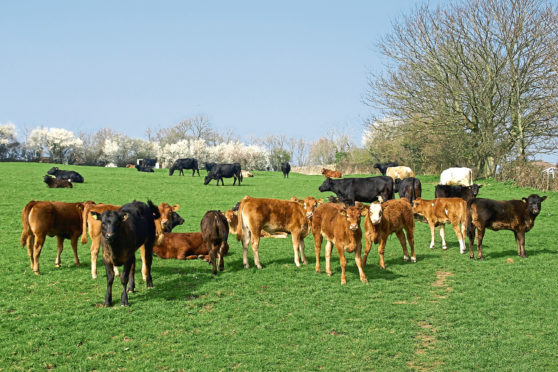Scientists are calling for more research to develop a vaccine against a disease affecting weight gain in calves.
Cryptosporidiosis has been shown to result in significant longer term weight loss and appreciable economic impact for farmers – around £130 per infected calf.
The disease primarily affects young calves and symptoms include a watery and profuse diarrhoea mainly in calves under three weeks old, causing dehydration and depression. In some cases, the disease can be fatal.
With no vaccines and only two licensed products in the UK to treat infection, the disease can be very difficult to control.
These treatments can reduce symptoms and shedding of the parasite in faeces, but will not cure the disease.
A study led by Dr Hannah Shaw took place during the spring calving of 2017 on a Scottish commercial beef suckler farm where there was a history of cryptosporidiosis in neonatal calves.
The study included weighing calves at birth and scored for severity of cryptosporidiosis every second day until they reached 16 days of age.
Subsequently, the calves were weighed again at four, five and six months old.
The results show that those calves which are affected with severe cryptosporidiosis in the first 16 days of life have a significantly reduced weight gain over a six-month period.
On average, a calf with severe disease weighed 34kg less than a calf which showed no clinical signs of cryptosporidiosis.
Dr Beth Wells of Moredun Research Institute highlighted the importance of management strategies to help reduce the impact of the disease, but added that further research is required to deliver a vaccine to prevent cryptosporidiosis.
jimillar@thecourier.co.uk
